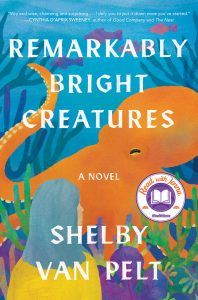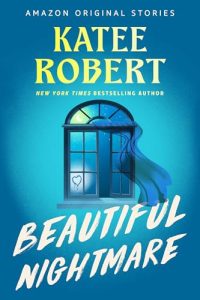
Emily Adrian’s Seduction Theory is a clever, provocative literary drama set within the charged atmosphere of a university English department, where intellect and desire tangle in equal measure. It explores infidelity, mentorship, and obsession through a structure that’s as daring as its themes, turning the academic world into a stage where truth, fiction, and ego blur beyond recognition.
At its surface, the novel reads like an academic scandal: two married professors tiptoe toward infidelity, and their betrayals are exposed through a graduate student’s thesis. But beneath that, Adrian dissects the complicated ways people manipulate each other in pursuit of admiration, validation, and love. The result is a layered, intoxicating look at how power operates in relationships romantic, professional, and intellectual alike.
The Plot: When Marriage Becomes a Thesis
Simone and Ethan appear to be the golden couple of Edwards University. Simone is brilliant, magnetic, and adored by her students a Woolf scholar turned campus icon. Ethan, her husband, is a quieter figure, a novelist whose career has faded into mediocrity. Their marriage, long romanticized by others, begins to unravel when Ethan sleeps with the department’s administrative assistant, Abigail.
While Ethan’s infidelity might seem like the story’s center, Adrian quickly shifts the spotlight. Enter Roberta “Robbie” Green, Simone’s ambitious graduate advisee, whose fascination with her mentor borders on obsession. Robbie’s MFA thesis becomes a fictionalized account of Simone’s marriage, revealing intimate details that may or may not be true. Through her eyes, the reader begins to question every character’s motives and every version of the truth.
A Smart Experiment in Storytelling
The structure of Seduction Theory is part of what makes it so distinctive. Adrian builds her novel around Robbie’s “thesis,” creating a layered narrative that feels like a literary nesting doll stories within stories, perspectives within perspectives. At times, the reader wonders who is narrating, how they know what they know, and whether any of it can be trusted. It’s both voyeuristic and self-aware, forcing the audience into the uncomfortable role of observer, complicit in the same moral blurring the characters indulge in.
This fragmented form works beautifully in the first half of the book, creating an addictive tension between curiosity and discomfort. However, as some reviewers have noted, the structure wobbles near the end, when the narrative’s sharpness begins to dull. Still, the ambition and originality of Adrian’s approach more than compensate.
Characters You Love to Dislike
Few novels capture the allure and toxicity of academic relationships as sharply as Seduction Theory. Simone is fascinating a woman so confident in her intellect that she becomes blind to her own emotional recklessness. Ethan is frustratingly weak, his quiet resentment and need for validation making him both pitiable and infuriating. Robbie, the young writer at the story’s heart, is an unnerving mirror: part disciple, part manipulator, and part avenger.
None of these characters are easy to like, but they are impossible to look away from. Their tangled dynamics expose the dark side of mentorship, the slipperiness of attraction, and the way admiration can tip into possession.
Themes That Hit Too Close to Home
At its core, Seduction Theory is about power the way it seduces, corrupts, and disguises itself as intimacy. Adrian captures the intoxicating push and pull between mentor and student, husband and wife, truth and fiction. The academic backdrop heightens the tension: a place where intellect is currency, where people justify emotional chaos as “research,” and where art becomes both weapon and confession.
The novel also asks whether storytelling itself can ever be ethical. When Robbie writes her thesis exposing her mentors’ private lives, is she committing betrayal or telling the truest version of events? Adrian leaves the answer suspended, like a paper graded in red ink that never gets handed back.
Final Thoughts
Seduction Theory is sharp, messy, and brilliantly self-aware. It plays with narrative form while exploring the fragile line between desire and destruction. Though its characters are unlikeable, their flaws are deliberate, written with a precision that feels almost surgical.
Emily Adrian has crafted a darkly witty and unsettling portrait of academia a world where ambition masquerades as affection and every act of creation is also an act of exposure. Fans of Conversations with Friends and Vladimir will find this book an equally hypnotic study of ego, intellect, and the moral hazards of intimacy.
If you’re drawn to character-driven fiction that unpacks the psychology of love, betrayal, and artistic obsession, Seduction Theory will leave you questioning the stories we tell to justify our sins.
👉 Get your copy here: Buy Seduction Theory on Amazon


